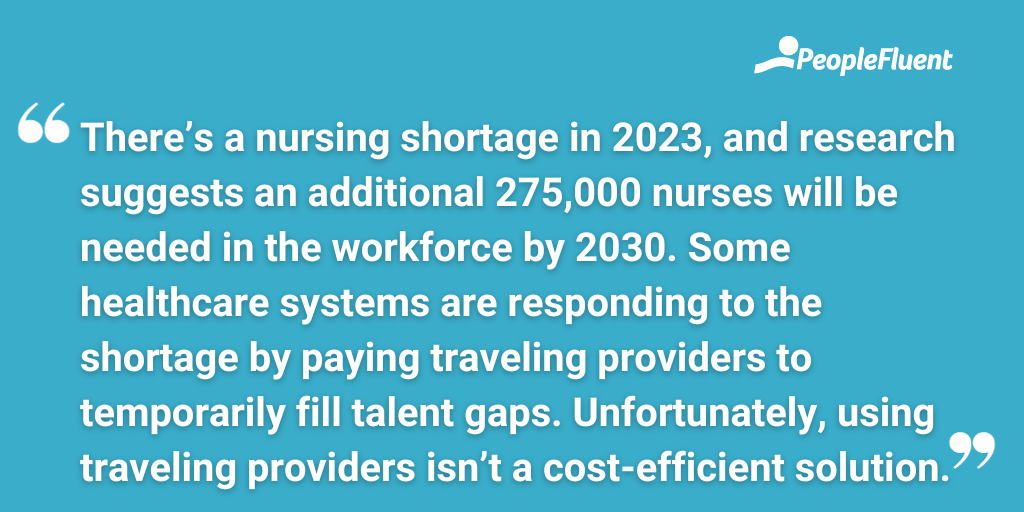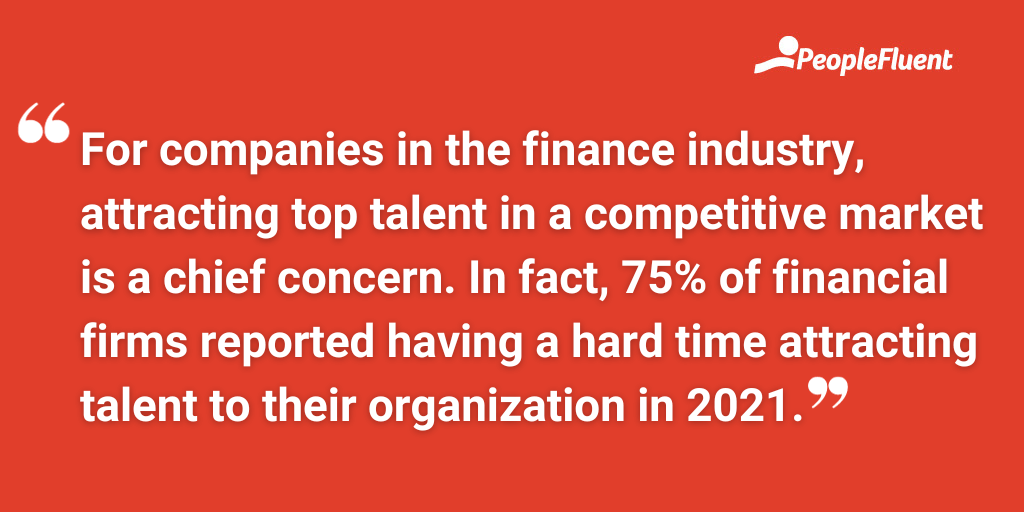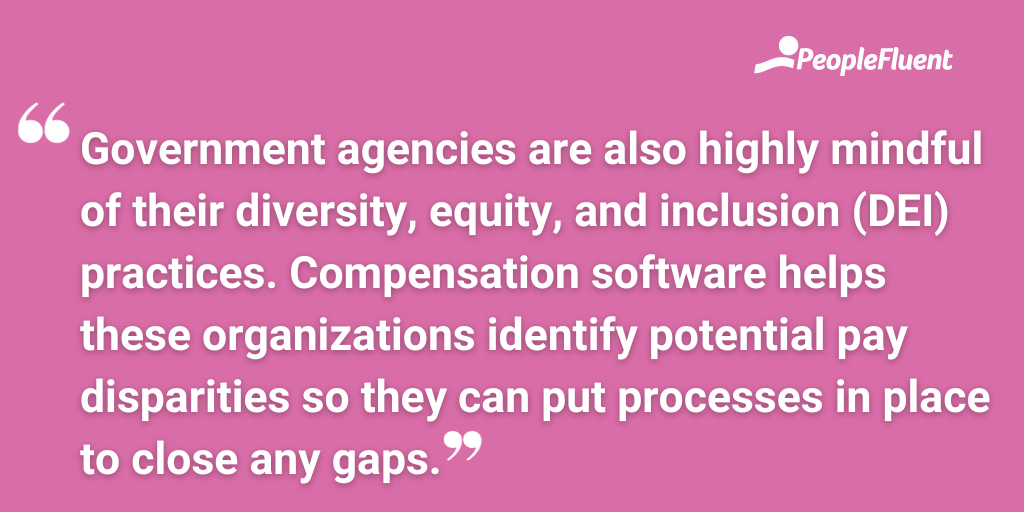Published: Nov 15, 2023Time to read: 9mins Category: Compensation
5 Industry-Specific Examples of Why Tailoring Your Compensation Plan Is Vital to Your Success
Organizations need a unique strategy for compensation planning that addresses both their individual company goals and industry-specific needs. In this blog post, discover compensation considerations for five distinct business sectors and why tailoring your award planning is essential to your success.
Nearly every organization can benefit from using compensation software to streamline planning. However, circumstances unique to your industry will play a role in how your company manages compensation and award cycles. It’s important to consider your specific situation and implement a compensation strategy that works best for your industry.
Before you start addressing your organization’s specific needs, you need to understand the compensation demands and financial requirements within your business sector. Below, we take a detailed look at five major industries and their unique compensation considerations as examples of the importance of tailoring your award planning strategy to your industry-specific needs.

1) Understanding the Compensation Complexities of Healthcare
Healthcare workers perform essential functions, often in high-stress scenarios, and it’s all too easy for them to get burnt out. In fact, a recent study found that approximately 47% of physicians, 56% of nurses, and 54% of other clinical staff report feelings of burnout, with 41% of nurses intending to leave their jobs. Due to the nature of healthcare work, it’s reasonable and necessary to compensate employees accordingly, but health systems rarely have unlimited resources. Funds must also go toward patient care, facility upkeep, utility costs, and much more. For hospitals, long-term care facilities, and other healthcare organizations, it’s important to balance competitive pay with providing quality care for their patients.
Human resources departments in this industry must also account for the different ways employees who perform the same or similar job functions are paid. For example, physicians might be compensated differently depending on whether they’re a hospitalist and only work in a specific hospital or if they’re affiliated with the hospital but also work in an outpatient office setting. Compensation strategies must include plans that cover such instances.
Skills-based compensation should also be considered. Providers are often able and encouraged to pursue additional credentials in order to provide better patient care. As such, compensation strategies need to have a plan for recognizing added skills and rewarding employees appropriately.
Alternatively, some roles within the healthcare system might be unionized while others are not. In these cases, skills-based pay might not apply to those employees who are in a union with a previously agreed-upon contract. The compensation strategy needs to account for all of these potential realities.
A well-planned compensation strategy could potentially help healthcare providers offer competitive wages that attract talent and save the organization money in the long run. There’s a nursing shortage in 2023, and research suggests an additional 275,000 nurses will be needed in the workforce by 2030. Some healthcare systems are responding to the shortage by paying traveling providers to temporarily fill talent gaps.
Unfortunately, using traveling providers isn’t a cost-efficient solution. Traveling nurses and other temporary clinical providers often cost much more than a permanent employee, but some organizations won’t be able to avoid outsourcing due to the talent shortage. With so many complex scenarios and job roles, healthcare systems need efficient compensation software to help organizational leaders map out their award strategies.

KEEP READING | ‘3 Ways PeopleFluent Compensation Makes Off-Cycle Payments Easier’
2) Accounting for Complex Award Plans in the Finance Industry
For companies in the finance industry, attracting top talent in a competitive market is a chief concern. In fact, 75% of financial firms reported having a hard time attracting talent to their organization in 2021. It’s important for compensation strategies to align with employee expectations to help financial organizations market themselves to potential new staff. Sometimes that means these organizations must offer more tailored award packages to meet potential employees’ expectations and needs.
Companies in this sector also have unique operating models and complex structures, so it’s essential that they communicate their compensation plans clearly with employees. Organizations with more well-defined compensation and total rewards strategies will be more likely to attract and retain top talent. Being upfront about the compensation package and award cycle process helps employees feel more valued and respected, which in turn will make them more likely to stay.
Financial organizations also need to accommodate special circumstances when managing award cycles, including:
- Merit increases
- Short- and long-term incentives for employees
- Stock options
- Bonuses
The unique needs and complex operating models of financial services firms and organizations make manual processes extremely difficult to sustain and increase the risk for human error. Compensation management software streamlines processes and is efficient at eliminating calculation errors, giving these companies back valuable time and resources that can be used to further their organizational goals.
3) Adapting Compensation to the Rapidly-Evolving Manufacturing Industry
The manufacturing industry is rapidly evolving. Companies are adopting new technologies and improving their processes, and the need for skilled workers is on the rise. In fact, a recent Deloitte survey found that 74% of manufacturers say finding the right talent is one of the top challenges to managing the production workforce. In the same survey, 51% of respondents claim that maintaining competitive wages and benefits packages is another top challenge. Manufacturing companies need to establish compensation packages and strategies that help them attract skilled employees and reduce workforce churn.
Companies in this space also need to account for how they’ll manage skills-based compensation. As employees attain new skills and certifications, organizations may choose to offer incentives or pay increases. Companies might also choose to award production-based bonuses. Each company’s operating model will be unique, and the compensation plan should be configured to meet individual organizations’ needs.

READ THIS CASE STUDY FOR A REAL-LIFE FINANCE EXAMPLE | ‘How Close Brothers Improves Efficiency and Modernizes Award Cycles With PeopleFluent Compensation’
4) Configuring Compensation Plans for the Retail Industry
The retail sector drives its performance through strategic compensation. Many retail organizations include bonus and commission models, which encourage employees to meet or exceed sales targets. Managing these awards in addition to employees’ base pay involves complex processes, especially for enterprise corporations handling bonus and commission information for hundreds or thousands of employees. Compensation software helps HR leaders ensure that the correct calculations are made so every eligible employee receives their bonuses and commissions appropriately.
Like all organizations, retailers carefully consider their budgets when planning their compensation strategies, but these companies must also be mindful of a unique line item that impacts their organizations more than those in other sectors. “Shrink” or “shrinkage” refers to product loss and the impact those losses have on a company's revenue. Shrink is usually a result of shoplifting or damaged items. Regardless of why shrink happens, retailers need to estimate how much product loss they can reasonably expect and include that number in their budgets.
To mitigate the risk of shrinkage, some companies opt to incentivize their employees who assist with reducing or preventing product loss. Each organization has a unique model for managing this, which means retailers need configurable compensation software that can be adjusted to their specific award cycle calculations.
It’s also common for large retail organizations to hire seasonal employees or make certain performance-based rewards available at various times of the year. This typically occurs when there’s an increased shopper demand and companies expect higher-than-average sales. As a result, organizations in the retail sector must account for seasonal workers and special bonuses when implementing their compensation plans. These can also include complex calculations that are difficult to manage using spreadsheets or other manual processes. Compensation software automates many of the processes involved, making it easier for retail organizations to plan strategically for their busiest sales seasons.

LEARN MORE ABOUT PAY EQUITY | ‘How to Drive Your Compensation and Pay Equity Planning Forward With People Analytics’
5) Keeping Government Agencies Compliant With Compensation Software
Government entities include a wide variety of organizations at the federal, state, and local levels. These institutions are responsible for a variety of public services. They’re also major employers, with individuals occupying roles with vastly different skills and backgrounds based on their specific jobs. Some examples of these organizations include:
- Law enforcement departments
- Public school districts
- Public transportation institutions
- Military departments
- City maintenance laborers
- Public health and safety institutions
- Justice departments
As government-backed organizations, these employers also must adhere to strict compliance regulations, often while also dealing with limited budgets and resources. In order to use their funds effectively, these institutions must have clear compensation strategies that keep them compliant while paying their workforce adequately. Leveraging available reports in compensation software makes it easy for these institutions to quickly gather their proof of compliance when it’s requested while also automating their award processes.
Government agencies are also highly mindful of their diversity, equity, and inclusion (DEI) practices. Compensation software helps these organizations identify potential pay disparities so they can put processes in place to close any gaps. Analytical tools allow the HR leaders to drill down by department, demographic, or across the organization to identify potential patterns of disparity in:
- Salary and starting pay rates
- Hourly or overtime pay
- Promotions, commissions, bonuses, and merit increases
- Performance ratings
- Location assignments
Manually gathering this information is time-consuming and leaves plenty of room for human error. Compensation software tailored to these organizations’ specific needs allows government institutions to streamline processes. With automation, government agencies can spend less time gathering data and more time making compensation strategy improvements that benefit their entire organization.
Compensation Software Streamlines Planning
Whether you operate in one of these five industries or another business sector, you’ll be faced with specific financial considerations when planning your compensation strategy. Before addressing your organization’s unique business needs, be sure you understand your industry’s specific financial requirements and work them into your overall compensation plan. Implementing compensation software can help you navigate complex scenarios and off-cycle award situations, so you can streamline your planning and enhance your overall pay practices.
Master Compensation Planning
Want to learn more strategies for improving your pay practices? Download our ebook, ‘Mastering Compensation: 3 Strategies for Streamlined & Effective Planning,’ or request a demo today.